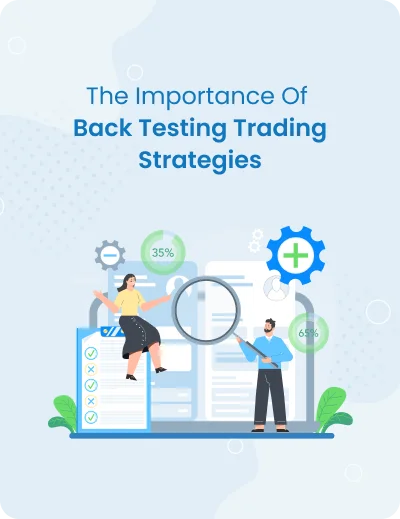The Importance of ‘Skin in the Game’ for Promoters in Listed Companies
Noor Kaur
31 Dec 2024Tags:
Featured
Introduction
In listed companies, the concept of skin in the game refers to promoters having a personal financial stake in the business they lead. This alignment of interests with shareholders is crucial in driving company performance, boosting investor confidence, and promoting responsible decision-making. Continue reading as we explore how this concept can help investors make better choices when investing in stocks.
What Does ‘Skin in the Game’ Mean?
The phrase "skin in the game" refers to a situation where executives or company insiders invest their money in the company they manage. This shows they are committed to the company's success and willing to share the financial risks and rewards.
Defining ‘Skin in the Game’ for Promoters
When company owners or high-ranking officials buy shares in their company, they are known as having skin in the game. This is a sign that they believe in the company's future success, as they put their own money at stake, not just manage it for others.
It Relates to Stakeholder Interests
When executives invest in their own company, they are incentivized to work towards increasing its value, which benefits both them and the outside investors. This practice helps build trust among investors who see that the company’s leadership is financially committed to the same goals.
Why ‘Skin in the Game’ Matters for Listed Companies
For listed companies (companies whose shares are traded publicly), skin in the game is important to align the interests of executives and shareholders. It ensures that those running the company are financially invested in its success, which benefits everyone involved.
Alignment of Interests Between Promoters and Shareholders
Executives with skin in the game want the company's stock to increase in value, just like outside investors. This creates a mutual goal for long-term growth and success, reducing the likelihood of executives focusing solely on short-term gains that might not benefit shareholders in the long run.
How Does It Increase Accountability and Responsibility
Skin in the game increases accountability. When executives have a personal financial stake in the company, they are more likely to make decisions that promote its long-term health rather than focusing on quick profits.
For example, a CEO with personal wealth tied to the company is more likely to consider the long-term effects of their decisions, ensuring they don't take excessive risks.
The Impact of ‘Skin in the Game’ on Company Performance
When executives or insiders have skin in the game, it directly influences company performance. Here’s how it impacts performance:
- Executives are more likely to make thoughtful, long-term decisions that benefit them and shareholders.
- Knowing that company leaders have personal stakes boosts investor confidence in the company’s future.
- Executives with skin in the game are more accountable for their actions, ensuring they focus on sustainable growth.
- A shared financial interest among leaders helps direct the company’s efforts towards common goals, improving collaboration and strategic planning.
Investor Confidence and Trust: The Role of Promoters’ Equity
When promoters (owners or key executives) invest their own money in their company, it signals to investors that they believe in the company's future. This personal financial commitment helps build confidence and trust among shareholders and potential investors.
Here's how it affects investor sentiment:
- When promoters have skin in the game, their financial success is tied to the company’s performance, reassuring investors that leaders are working toward long-term value.
- Investors feel more comfortable knowing promoters are equally exposed to risks, leading to better communication and transparency.
- The presence of skin in the game often signals that company leadership is committed and confident, which can positively impact stock prices and market reputation.
Case Studies: Successful Promoters with ‘Skin in the Game’
Here is a notable example of promoters who have proven the value of this approach:
Elon Musk, Tesla's CEO, is another strong example. According to his SEC filing, Musk owned over 227 million shares of Tesla as of December 2021. His large personal stake in the company aligns his interests with those of shareholders and motivates him to drive Tesla’s long-term success.
Risks of Lack of ‘Skin in the Game’ for Promoters
When promoters or executives lack skin in the game, several risks arise that can impact both the company and its shareholders:
- Without personal stakes, executives may prioritise short-term gains over the long-term interests of shareholders.
- Executives without personal investment might make less careful decisions, as their wealth isn't tied to the company's performance.
- Investing in stocks feels riskier without executives having skin in the game, lowering investor confidence.
- Restrictions like front running (using insider information to trade for profit) sometimes prevent executives from investing their money.
Conclusion
When investing in stocks, having skin in the game is a key indicator of confidence. It shows that executives are not just running the company for a paycheck but are also personally invested in its success. So, when you start investing, look for companies where management has skin in the game to ensure they have a vested interest in the company's growth and performance.
FAQs
How can investors check if promoters have skin in the game?
Investors can check promoters' stakes in the company by reviewing public filings, such as the annual report or SEC filings, which show the percentage of shares owned by executives. This information helps investors understand the level of skin in the game among company leaders.
Does the level of promoter ownership impact stock liquidity?
Yes, a high level of promoter ownership can reduce stock liquidity since fewer shares are available for trading in the market. However, it can also indicate stronger commitment from promoters, which may benefit shareholders.
What happens if promoters lose their ‘skin in the game’?
If promoters lose their skin in the game, it can reduce their commitment to the company’s long-term success, potentially affecting investor confidence. This may lead to a decline in stock prices as investors may feel less assured about the company's future.
How does skin in the game affect corporate governance practices?
Having skin in the game typically strengthens corporate governance by aligning the interests of promoters with those of shareholders. It encourages more responsible decision-making, as the company's success directly impacts its wealth.
Can promoter actions influence the company’s market performance?
Yes, promoters' actions can significantly impact the company’s market performance, as they often drive major decisions that affect growth. When promoters are invested personally, they are more likely to make strategic choices that benefit the company and shareholders.
Are there any regulatory requirements regarding promoter stakes in listed companies?
Yes, regulatory bodies require listed companies to disclose promoter stakes and any changes in their ownership. This transparency helps investors evaluate the level of skin in the game and make informed decisions when investing in stocks.
Noor Kaur
31 Dec 2024Related blogs
Sign up to our newsletter !
Share this article on
Recent articles
Tags:
Open a Demat Account in just 15 minutes !

Click on open
account below

Fill out some
basic details

Upload your
documents

Start trading in
24 Hours *
Commonly asked questions
Is Master Capital Services Limited SEBI registered?
Do you have a mobile app for Trading and Finance Management?
What services does mastertrust provide?
What is the minimum investment required to start trading with your company?
Is my personal and financial information secure with your company?
What is your customer support availability?





